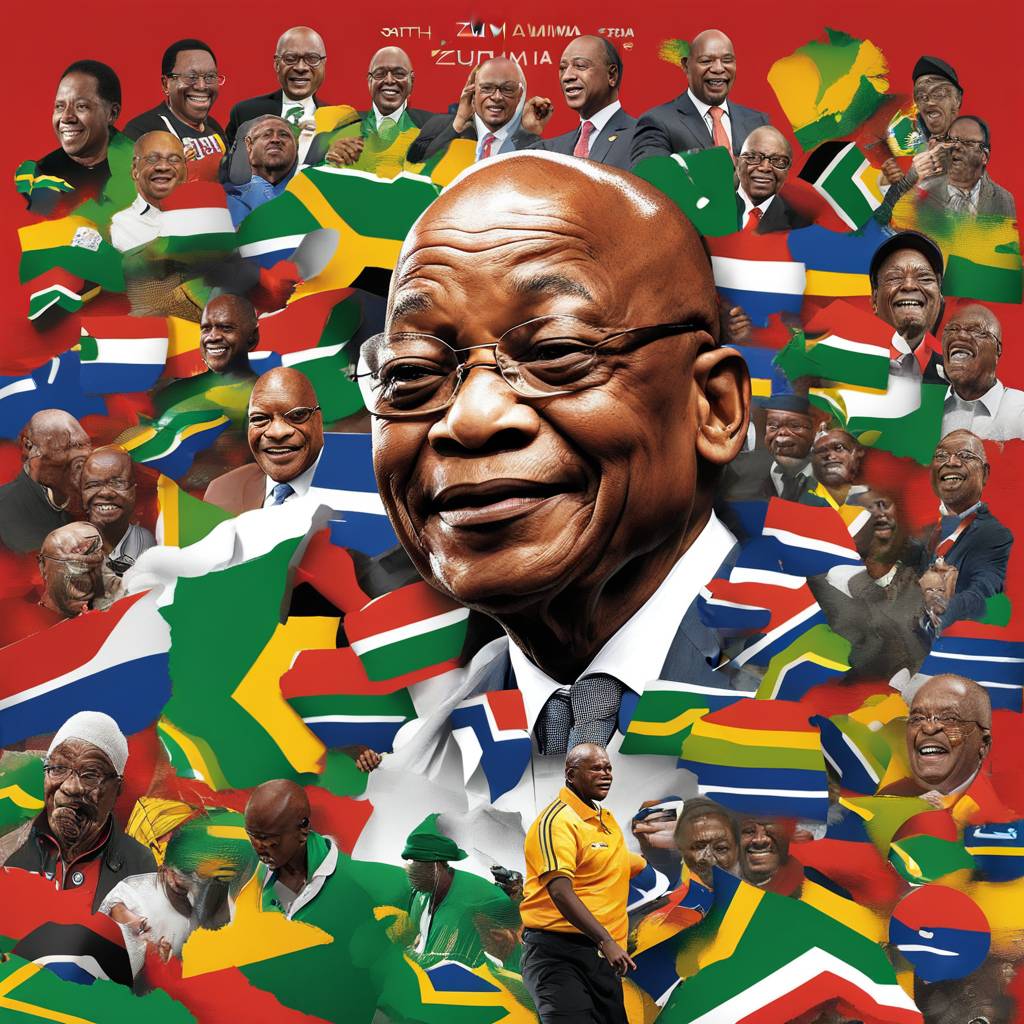South Africa’s election authorities have prevented former President Jacob Zuma from running in the upcoming May election, adding tension to the political climate as the nation prepares for what could be one of the most competitive electoral contests since the end of apartheid. Zuma, who served as president from 2009 to 2018, has a longstanding history with the African National Congress (ANC) and was imprisoned with Nelson Mandela during apartheid. Despite his initial popularity and promises of reform, Zuma’s time in power was marred by corruption allegations, leading to his resignation in 2018 amid mounting pressure.
After defying a court order to appear in a corruption inquiry in 2021, Zuma was sentenced to 15 months in prison, leading to deadly riots by his supporters. He was released on medical parole in September, and later threw his support behind the newly formed uMkhonto weSizwe (MK) party, spearheading speculation that he was involved in its establishment. Zuma’s alliance with the MK and his criticism of current President Cyril Ramaphosa have threatened the ANC’s grip on power, with polls showing a decline in support for the ruling party, further impacted by the violence in KwaZulu-Natal and Gauteng provinces during the riots.
The launch of the MK party and Zuma’s involvement have created a significant shift in South African politics, with polls suggesting a potential decrease in ANC’s share of the national vote. Zuma’s support base in KwaZulu-Natal and Gauteng could further weaken the ANC’s hold on power, with voters expressing a preference for the MK over the ANC. By appealing the decision to bar him from running and continuing to campaign against his former party, Zuma could potentially revive his political career and pose a significant challenge to the ANC, which is already facing a decline in popularity.
As the MK plans to appeal the decision and potentially contest the upcoming election, the political landscape in South Africa remains uncertain. The ANC’s attempt to block the MK from participating in the election was rejected by the Electoral Commission, and a court ruling upheld the MK’s right to compete. Zuma’s future involvement in the election could sway the outcome, especially in provinces where he has strong support. With the election scheduled for May 29, the impact of Zuma and the MK on the political landscape in South Africa remains to be seen, as the nation prepares for a potentially transformative electoral contest.













